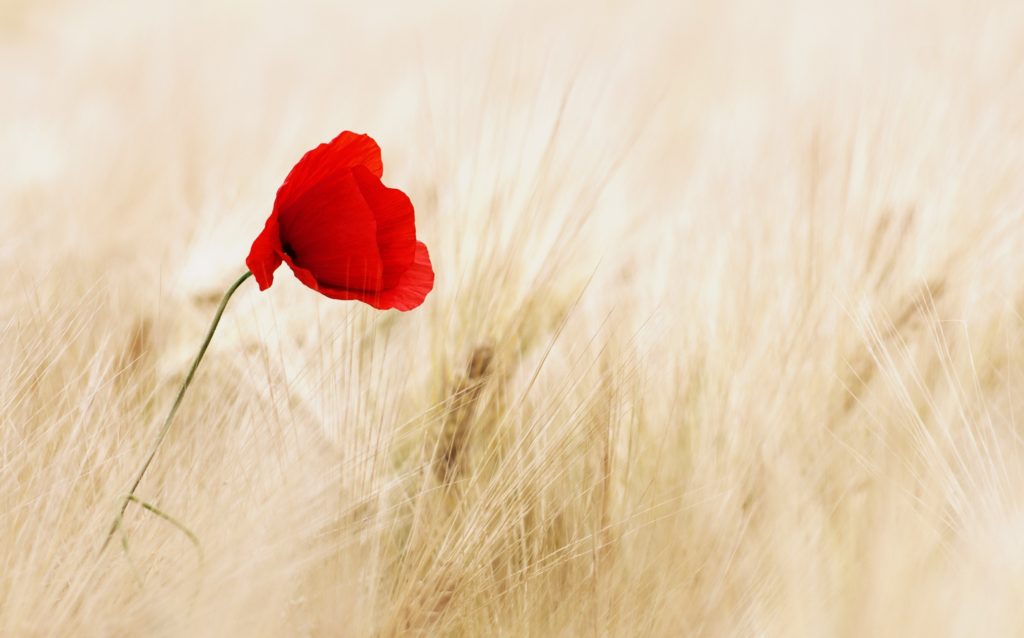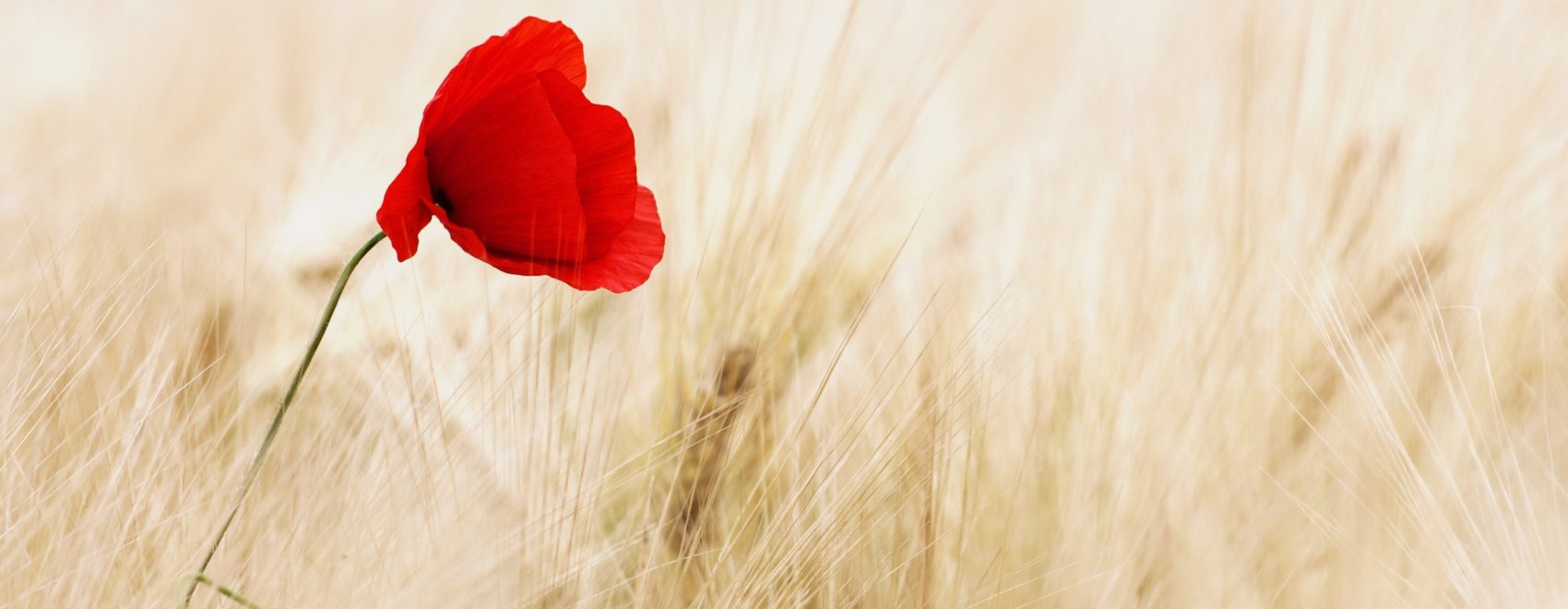
According to the American Legion, in the years after World War I, 1914-1918, poppies thrived throughout the former battlefields of Belgium and France, enriched with lime in the ruins of the war. Red poppies aptly symbolized the blood soldiers shed on those battlegrounds. They gained a further association with the war after the appearance of Canadian Lt. Col. John McCrae’s immortal poem, “In Flanders Fields.”
McRae was a medical doctor who served in the Second Battle of Eep-rah (Ypres) in May 1915, which was the first time the German military employed gas against its foes. Over 100,000 soldiers died in that battle, from both sides. One of the casualties was Alexis Helmer, a Canadian Lieutenant and friend of Dr. McRae, who spoke at Helmer’s funeral, an experience that inspired him to write, “In Flanders Fields.”
According to Veteran’s Administration Canada:
“The day before he wrote his famous poem, one of McCrae’s closest friends was killed in the fighting and buried in a makeshift grave with a simple wooden cross. Wild poppies were already beginning to bloom between the crosses marking the many graves. Unable to help his friend or any of the others who had died, John McCrae gave them a voice through his poem. It was the second last poem he was to write.” The doctor died in January 1918 of cerebral meningitis.
This moving poem inspired Moina Michaels, a school teacher from Georgia, to create a tradition in which poppy pins made of silk or papier mache’, would be worn every Decoration Day, which became known as Memorial Day beginning in 1971. The American Legion and VFW employ the symbol with its accompanying message: “lest we forget.”
The poppy became the official flower of The American Legion on September 27, 1920, to memorialize the soldiers who fought and died during the war. The Legion began distributing the poppies nationally in 1924 and has continued over these last hundred years.
In Flanders Fields
By Lt. Col. John McRae
In Flanders Fields, the poppies blow
Between the crosses, row on row,
That mark our place; and in the sky
The larks, still bravely singing, fly
Scarce heard amid the guns below.
We are the dead. Short days ago
We lived, felt dawn, saw sunset glow,
Loved and were loved, and now we lie,
In Flanders fields.
Take up our quarrel with the foe:
To you from failing hands we throw
The torch; be yours to hold it high.
If ye break faith with us who die
We shall not sleep, though poppies grow
In Flanders fields.


Leave a Reply